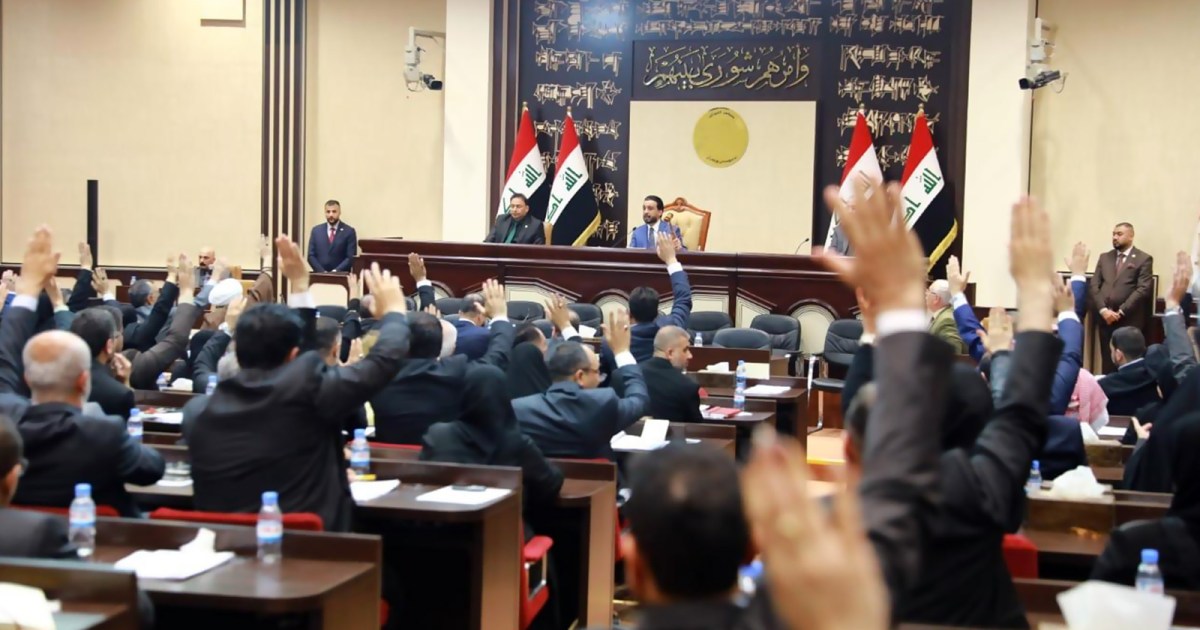The Iraqi parliament will hold its session this afternoon to complete the vote on the electoral districts clause in the new election law.
The session was held at the invitation of Parliament Speaker Muhammad al-Halbousi to decide options for constituencies to implement the law for the upcoming parliamentary elections.
Parliament had voted on the election law last December, under pressure from the demonstrations that toppled the government of former Prime Minister Adel Abdul Mahdi, and the law was passed by a majority in light of opposition from some political forces.
It is noteworthy that the individual nomination and the multiple departments were among the most prominent demands raised by the demonstrators, in addition to demands for political and economic reforms and the fight against corruption.
Iraqi sources stated that the political forces in Parliament conducted, during the past few days, dialogues to reach an agreement regarding determining the shape of electoral districts in terms of number and geographical borders for each province, as opinions differ between adopting single, intermediate or multiple districts for each governorate, and preventing cases of fraud.
The three presidencies are seeking to hold early parliamentary elections in June 2021, with an electoral system that guarantees the rights of all, without fraud and under international supervision.
Last week, the Electoral Commission confirmed its readiness to hold early parliamentary elections, specifying several conditions, which are summarized by parliament to complete the election law and enact the federal court law as it is the authority authorized to certify election results.
It called on the government to prepare the electoral budget and to provide the requirements that the commission had previously requested from the relevant ministries.
The Electoral Commission also called on the government to approve the appointment of the Directors General elected by the Board of Commissioners.
It ended its conditions by inviting the United Nations and other competent international organizations to provide electoral assistance, and to provide the necessary oversight to achieve free, transparent and fair elections by increasing the number of its experts and distributing them in the field among all governorates and not reducing them to a small number.
The High Commission is considered a neutral governmental body entrusted with the responsibility of organizing and supervising all kinds of elections and referendums in Iraq.

